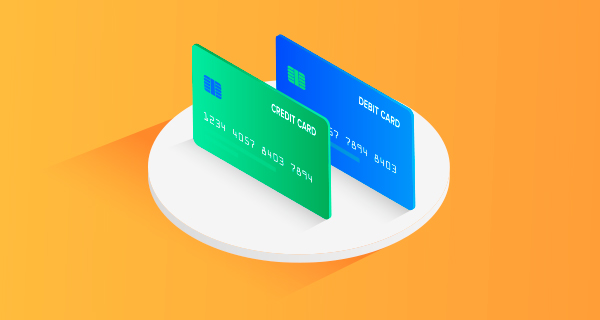
To open a bank account in Switzerland, previously, you had to show a valid identity document in person or send a certified copy by post. Today, thanks to the latest technology, it is possible to open a bank account in Switzerland remotely without going to Geneva, Zurich, Bern, or any other city for that matter.
Switzerland has a well-known reputation for having the best and most secure banking system in the world. The two major Swiss banks in Switzerland are UBS and Credit Suisse. In addition, there is also Post Finance, Migros Bank, and Raiffeisen. There are also various cantonal banks. All of these banks are regulated and authorized by the FINMA (Federal Financial Market Supervisory Authority). The FINMA is the Swiss government body responsible for financial regulation.
Banks in Switzerland are changing
A few years ago, opening a bank account meant waiting in line at a local branch, paperwork, and a lot of wasted time. Today things have become much easier and as a result of the Covid-19 pandemic, the importance of online banking has now become more important than ever. Banks understand that in order to reach more clients they need to be able to provide a completely digital experience. A large portion of our day to day tasks are taking place on our mobile devices and other electronic devices and this is where the banks need to be. Today we can buy groceries, get our prescriptions filled, and buy a car on our mobile phone. The list goes on. Swiss banks understand the need for this transformation and are moving fast towards digital banking.
What is digital banking?
Digital banking (also know as online banking) is the moving online of banking activities that usually took place at a physical bank location. Some of these activities include cash deposits, withdrawals, transfers, paying bills, and other account services. Digital banking is a term that is used to describe a banking activity that takes place on a digital device, such as a mobile phone or a laptop computer. Paying for groceries by scanning a QR code on your phone, paying bills online, or sending money to a friend via an app is all considered digital banking.
Why is digital banking so important today?
The Covid-19 pandemic has changed many aspects of our day to day lives. It has changed the way we work, the way we shop, the way we bank, and plenty of other aspects of our lives. For better or worse we needed to adapt and make the most of an unprecedented situation. Banks have been working on digital transformation for some time now but the pandemic has put higher pressure on the industry to make changes and fast. As we move towards a "cashless" society the need for digital banking has become more relevant than ever. Sending money to a family member or a friend can be done in a few clicks. A wire transfer whether domestic or international can be done much quicker than ever before. Spending, saving, trading and investing can all be done in one place from one account. This is the where the simplicity and ease of digital banking shines.
Digital banking platforms also offer extras that can help in our day to day needs. A currency converter, for example, can be very useful when you need to exchange currencies. This allows you to see exactly how much you will get when you buy and sell currencies.
Another extra that some digital banking platforms offer is stock market news. This can come in handy when using a digital banking platform to invest. Insights are important when making investment decisions and having this news in a convenient and easy to read format is an added plus.
Benefits of a Swiss Bank Account
A Swiss bank account has many benefits. The top two include low financial risk and a very high level of privacy. The economy in Switzerland is one of the most stable in the world. Switzerland has not been involved in any conflicts in centuries. Swiss regulations require that banks have high capital requirements and solid depositor protection. This ensures that every deposit will be safe in case of a financial crisis and conflict.
In terms of privacy, Swiss law prevents a bank from revealing any information regarding an account. Even the fact that the account exists cannot be revealed unless a government agency believes the account holder is involved in a criminal act or a major financial issue such as bankruptcy.
Can I open a bank in account Switzerland online?
Yes, today more and more banks allow you to open an account without even stepping into a branch. This was not possible a few years ago but we are moving into the age of digital banking and that makes things much easier! Of course, you will still need to be prepared with some documents and be able to verify your identity. Let's have a look on how to get started.
What do I need to open a Swiss bank account?
In order to open up a Swiss bank account, you will need to answer some personal questions, verify your country of citizenship and your identity. Most major banks now have an online process in place which makes the "onboarding" process simple and fast. The onboarding is the process the bank undertakes to bring a new client onboard. The process is very simple and the identification process is becoming more and more user-friendly. In most cases you need to show a government ID as proof of identity. This can be a passport or a residency card. You will also need to show proof of address. This can be shown with a utility bill, a mobile phone bill or a rental contract. These document usually need to be less than three months old.
Which bank in Switzerland is right for me?
This really depends on your needs. Every bank offers a variety of packages and options and it's a good idea to explore what suits you best. It also depends on your banking needs. Do you need a credit card? Free ATM withdrawals? Are you looking for a place to save, to invest, to trade? There are quite a few things to consider and most Swiss banks provide you with a range of products depending on your banking needs. It could also be a good idea to have more than one account, one for your salary and paying monthly bills, and another account for investing and trading on an easy to use platform.
What are the costs to open a Swiss bank account online?
Most banks in Switzerland offer free bank accounts which include a free debit card and free online banking as standard. If you’re looking for additional benefits or discounts there may be other options available for a monthly fee.
What about traveling? Shopping abroad?
This is where things can be a bit unclear. If you have an account in Swiss Francs (CHF) and start using it to purchase items in Euro (EUR) it is important to understand there are extra fees involved. Some debit cards (Post Finance for example) may not be accepted in countries outside Switzerland. Other banks usually charge a fee for using their card outside Switzerland plus you will need to pay for the foreign exchange rate which tends to be uncompetitive.
International transfers
This is something many people tend to overlook. Most banks charge a fee or others that advertise free transfers are in reality providing very unfavorable foreign exchange rates. It is important to completely understand your bank fees. If you are making international transfers often, even small amounts can up and become significant.
To sum it up the account opening process is quite straightforward but exploring the options is always a good idea. One thing for sure is that you are in one of the safest countries in the world when it comes to banking and protection of your money, so that's one less thing to worry about already.
Read our next article on how to open a bank account online.









